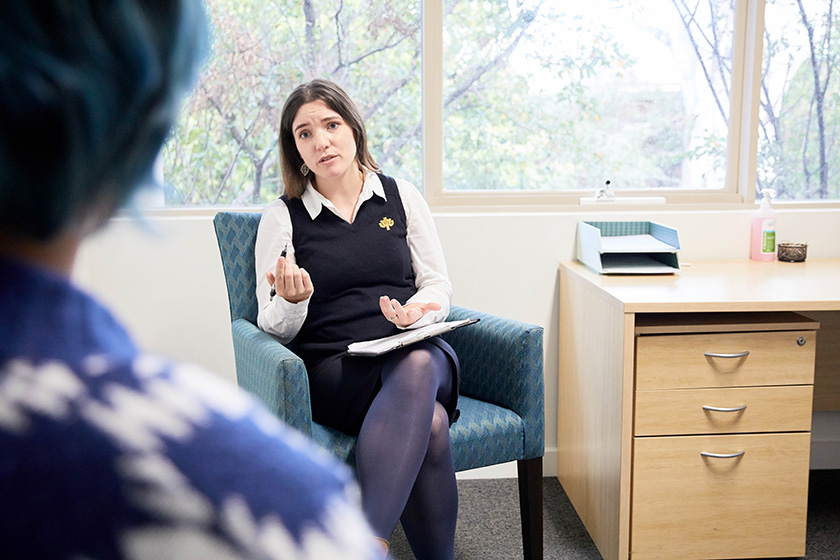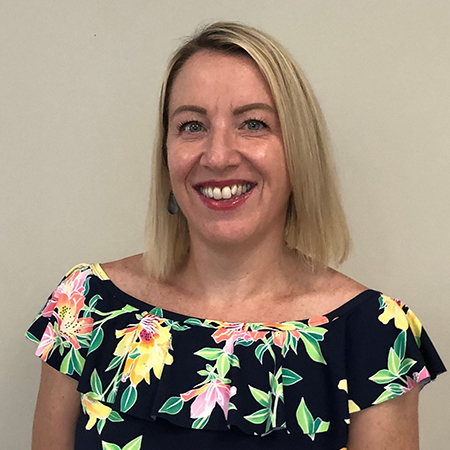Addiction is a leading preventable cause of injury, illness and death in Australia and affects all age groups, across all communities, so it’s unlikely that six degrees of separation exists between yourself and people managing addictions in their everyday lives. Oxford University evolutionary psychologist Dr Robin Dunbar, ascertained through various studies that humans are only capable of maintaining up to 150 friends and acquaintances before big groups of connections split off or collapse. That means it’s highly possible that 30 of the people you connect and socialise with are either suffering (or have suffered) from an alcohol, drug or gambling disorder at some point in their lives.
If we drill down further, Dunbar has determined that we tend to have a cluster of about 10 close friends who are part of our most important support network and five very close friends who round out our inner circle. That means it’s possible that one of your closest friends is experiencing a disorder and if you widen that scope to your support network of friends, at least one other is an addict walking alongside you.
Scary stats when you personalise them.
What’s more remarkable is that if addiction and alcohol, drug and gambling disorders are so common among our friendship groups why does the stigma surrounding this disease remain?
While other health disorders such as depression and/or anxiety have made headway as far as widespread acceptance and demystifying the concept, little progress has been made in removing the taboo surrounding substance use disorders — largely due to the public perception that addiction is a result of moral weakness and a flawed character. Simply, often people living with addiction are blamed for their disease despite the consensus among medical professionals that their condition is a complex brain disorder with behavioural components.
Ironically, the stigma that exists can actually enhance or reinstate drug use and plays a key part in the vicious addiction cycle. Even when people overcome their disorders or addictions they are under constant surveillance and judgement for relapse. Other chronic health conditions such as diabetes and high blood pressure have equally high rates of relapse and yet society doesn’t shame a person with high blood pressure for eating a French fry or a person with diabetes for having chocolate cake.
“It’s important to know that there are resources available to help you or a loved one combat a substance use disorder or addiction,” explains St John of God Langmore Centre Director of Medical Services and addiction psychiatrist Dr Muhammad Usman Riaz — a mental health facility in Berwick which provides wellness and recovery options for people with acute mental health and addiction conditions. “The first thing to understand is that a person with a substance use disorder is unlikely to seek help if they don’t recognise that they have a problem or are not ready to confront it.”
However, Dr Riaz recommends seeing your GP for a referral to an appropriate drug and alcohol addiction program if you or your loved one needs some support.
“At the Langmore Centre we have both inpatient and outpatient programs that are designed to help you address the physical, emotional and social factors associated with substance abuse or drug and/or alcohol addiction.”
Led by experienced therapy teams which may include, psychologists, psychiatrists, counsellors, registered nurses and other allied health professionals, treatment programs aim to understand individual triggers, equip patients with the skills and techniques to control their addictions, learn how to handle stress and develop a capacity to deal with life’s challenges.
“Families are also included in the treatment and recovery program so that they have access to the appropriate information and support sessions that will enable them to help better manage their loved one’s recovery journey,” says Dr Riaz.
Inpatient programs provide patients with the opportunity to access a mix of individual and group-based therapies. The new facility will include all private room accommodation for inpatients, a neuro stimulation suite for electroconvulsive therapy (ECT) and repetitive transcranial magnetic stimulation (rTMS) treatments, in-house dining facilitates and therapy rooms, including specialised art rooms, outdoor gathering spaces and an exercise studio. There will also be a separate wellbeing hub that will house community prevention programs such as supporting youth mental health, mindfulness classes, mental health first aid, and information sessions on anxiety and depression among other mental health conditions. There will also be specialised group therapy and day programs for inpatients, as well as consulting suites on site.
Widely recognised as a key contributor to maintaining good mental health, opportunities to focus on health and wellness are easily accessible and highly encouraged by our exercise physiologists and physicians who are on hand to support patients with their goals.
“Many of our patients benefit from including exercise in their recovery programs,” offers St John of God Langmore Centre’s Chief Executive Officer Linda Allen. “Learning how to use exercise as a tool to manage symptoms, improve physical health, sleep quality and overall quality of life, is an important factor in treating many mental health conditions. And it’s why we have a team of dedicated clinicians and an exercise studio on site to help.”
The centre also offers ongoing support through day group programs which focus on relapse prevention after discharge. Based on cognitive behaviour therapy, the day programs are designed to equip patients with the skills needed to beat addiction through therapies such as mindfulness, and acceptance and commitment therapy.
“We acknowledge that the treatment of addiction can quite often be met with relapse, which is a normal part of recovery,” admits Dr Riaz. “However one does not have to be alone on this journey. As an expert mental health provider, we at the Langmore Centre are here to support our clients as they work through addiction and relapse, and onto the brighter, healthier and happier side of recovery.”
To access the inpatient program, a GP referral is needed with costs covered by most private health insurers depending on a patient’s level of cover.







